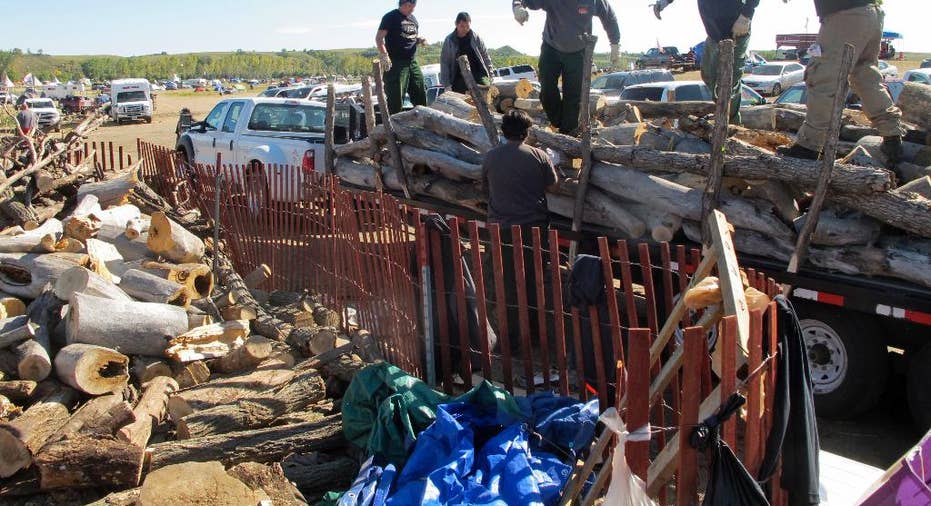Pipeline protest site a city unto itself with school, meals

NEAR THE STANDING ROCK SIOUX RESERVATION, N.D. – What started in April with a few members of the Standing Rock Sioux tribe has become one of North Dakota's newest and biggest communities.
Hundreds, sometimes thousands, of people have set up tents and shelters near the confluence of the Missouri and Cannonball rivers, joining tribal members in their fight against the Dakota Access oil pipeline to protect sacred sites and a river that's a source of water for millions of people.
There's a school for dozens of children, an increasingly organized system to deliver water and meals and volunteers from the health care sector.
Protesters say they'll stay on federal land as long as it takes to stop the $3.8 billion, four-state pipeline — even in brutal winter conditions.
The pipeline company says it's committed to finishing the project.



















